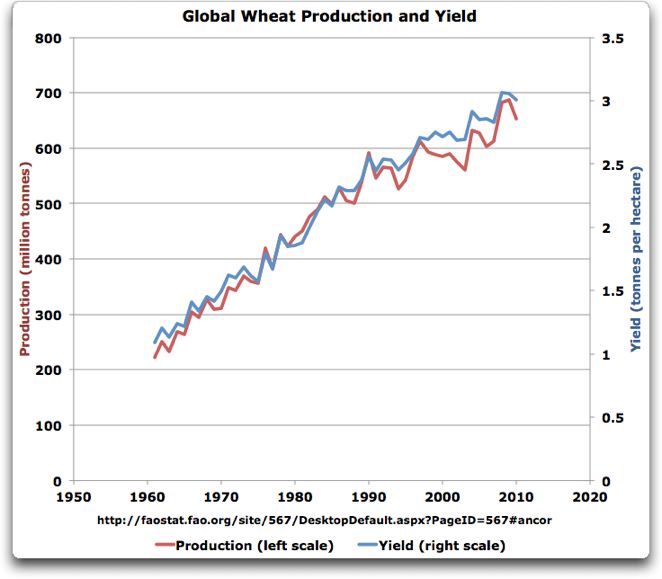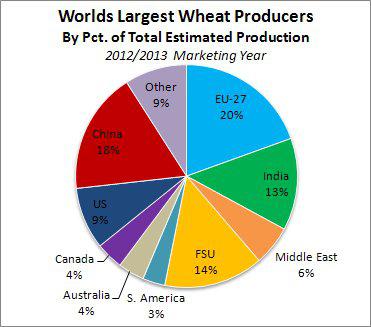What follows is the story of how editors at renowned German weekly Die Zeit completely botched the translation of English text passages to German, thus making their German story completely erroneous, and far more sensational.

Climate change threatens the global supply of noodles, Die Zeit claims. Source: www.kaltesonne.de
================================================
Embarrassing translation blunders in climate-alarm article by Zeit online: A welcome distortion of meaning?
By Dr Sebastian Lüning and Prof Fritz Vahrenholt
Translated/edited by P Gosselin
The climate catastrophe is known to be responsible for almost all of the world’s ills. Supposedly it will also be responsible for the demise of the noodle. At least that’s what our favorite newspaper Die Zeit told its readers in a recent online article.
The Die Zeit article is a translation of an English-language article by Mark Hertsgaard which appeared a week earlier at The Daily Beast, an Internet news page associated with Newsweek.
Let’s take a look at what’s going on with the noodle catastrophe. Die Zeit writes in German:
Wissenschaftler haben starke Belege für einen direkten Zusammenhang zwischen den steigenden Temperaturen und den weltweit sinkenden Erträgen in der Weizenproduktion. Allein in den vergangenen 50 Jahren sank die Weizenproduktion um 5,5 Prozent, während die durchschnittliche Temperatur anstieg.”
Which in English is:
Scientists have strong evidence of a direct relation between rising temperatures and falling worldwide yields of wheat production. In the past 50 years alone wheat production fell about 5.5%, while the average temperature rose.”
Oh man. That doesn’t sound good. The world’s population is growing and growing and wheat production over the last five decades has dropped. And that despite the ongoing mechanization, genetic improvements of seeds and well-designed irrigation systems. That half degree of warming since 960 is a real wheat killer and CO2 is a really bad noodle pestilence!
Yet, something appears fishy about the whole thing. That’s what an astute reader at the Wetterzentrale forum thought, and so he took the time to compare the Die Zeit German text to the original English text. In doing so, he discovered gross translation errors, which obviously somehow escaped the attention of the climate-activist editorial office. Here’s the original English:
Already, a mere 1 degree Fahrenheit of global temperature rise over the past 50 years has caused a 5.5 percent decline in wheat production compared to what would have occurred in the absence of global warming, according to a study published by David Lobell, a professor at Stanford University’s Center on Food Security and the Environment.”
Wheat production over the last 50 years namely has not decreased at all. To the contrary, global wheat production actually tripled during that time period (see Figure 1). The original English text says the rise in wheat production was 5% less than what it would have occurred had there been no climate warming. This is like a millionaire complaining that he made only 500,000 euros last year, and not the 525,000 euros he would have made had the lousy euro-crisis not interfered. Of course, we don’t need to feel bad about the “loss” the millionaire had to take. The same is true with the “missing” wheat. If anything we should feel bad for the translator who mangled the meaning, and for the climate editorial team at Die Zeit, who, because of their religious zealotry, have long abandoned the standards of science (see for example our blog report “The Climate Mercenaries: Investigative Reporters of ZEIT Join In On The Holy Climate War“).

Figure 1: Global wheat production of the last 50 years. Data: FAO, wattsupwiththat.com (Willis Eschenbach)
Let’s read more of the quality translation from that quality weekly Die Zeit, which wrote in German:
Überall auf der Welt ändert sich gerade die Art und Weise, wie der Weizen angebaut werden kann. Drei Viertel der weltweiten Weizenproduktion kommen aus der Mittelmeerregion. Der Klimawandel wird Südeuropa sogar noch härter treffen als North Dakota.”
In English this is:
Everywhere in the world, the methods of how wheat can be planted are now changing. Three quarters of the worldwide wheat production comes from the Mediterranean region. Climate change will hit Southern Europe even harder than North Dakota.”
Wow, three quarters of worldwide wheat production comes from the Mediterranean region. That’s really heavy. China, Russia, India and die USA are left way behind in the dust of the Mediterranean wheat powerhouse. What’s the secret of the Mediterranean wheat farmers?
Utter nonsense. This couldn’t be more embarrassing. The climate quality assurance of Die Zeit had failed once again.
The reality is that wheat production is pretty much distributed all across the globe. China, Russia, India and the USA are all in the same league as the EU (Figure 2). In the real figures there’s not a trace of any wheat dominance. And certainly not when one considers durum wheat, which is especially important for noodle production.

Figure 2: Global overview of wheat producers. Source: Seekingalpha.com
Author Mark Hertsgaard then plays the climate-catastrophe card, predicting a great number of droughts and heat waves by 2050, based on dubious IPCC models. That would strongly and negatively impact wheat and noodles at the Mediterranean. Die Zeit writes:
Allein in Italien und Frankreich werden die Ernten bis zum Jahr 2050 um bis zu 15 Prozent zurückgehen, weil Hitzewellen und Dürren die Regionen heimsuchen werden, schätzt die Europäische Umweltagentur.”
Which in English is:
Alone in Italy and France, harvests will drop by up to 15% by the year 2050 because heat waves and droughts will afflict the regions, estimates the European Environment Agency.”
But even the European Environment Agency indeed meant something different from what Die Zeit wanted to understand:
As the frequency and intensity of heat waves and drought increase, yields of nonirrigated crops are projected to decline by 5 to 15 percent in Italy and southern France by the 2050s, according to a new report by the European Environmental Agency. Yields in Spain and Portugal could fall by 15 to 25 percent.”
Have you noticed? In the original English text, they are discussing ‘non-irrigated areas’. Die Zeit simply leaves out this seemingly unimportant detail. Here the share of irrigated areas in the Mediterranean region is today already significant and will continue to gain. These areas are impacted far less.
So how could this series of errors, misinterpretations and distortions happen? Has the Die Zeit editorial board thrown every journalistic ethic overboard? Is the climate-activist urgency so great that all means are justified?
Perhaps the end of the year is a good occasion for the editorial board to think about a wise saying by Hanns Joachim Friedrichs: “A good journlaist is one who does not become subjective with any topic, also with a good topic.”
======================================
Also read more at wattsupwiththat.com.





If they wanted drama they could have simply said “after 50 years of global warming wheat production has practically tripled”. Presumably with an opinion piece explaining how awful this is.
You might want to mention and link to the WUWT post where you cite:
Figure 1: Global wheat production of the last 50 years. Data: FAO
That’s a WUWT original by Willis Eschenbach.
http://wattsupwiththat.com/2012/12/12/climate-craziness-of-the-week-mark-hertsgaard-embarrases-himself-with-the-end-of-pasta/
Thanks, Anthony. Now fixed. Wishing you happy holidays!
Sweeet.
Now, growing yields seem to be a concept that is especially hard to grasp by a Malthusian brain, as Richard Black once demonstrated with a similar misunderstanding, and Anthony had to correct him.
Add to that the struggle involved in handling numbers, and you see where the poor Zeit journos completely botched it. And, oh, translating from English!
Way too many skills needed…
Translating from English is a problem for Germans.
e.g. They believe that “handy” means mobile phone. 🙂
Merry Christmas!
Merry Xmas to you too, Bernd!
German investigative journalism at work.
Just to show that we will very likely continue to have to endure the climate change juggernaut,
Nature Climate change 2012 reports about an EU budget,
http://www.nature.com/nclimate/journal/v2/n4/full/nclimate1464.html
and while I found this, Google allowed me to view this picture related to the paywalled article.
http://www.nature.com/nclimate/journal/v2/n4/images_article/nclimate1464-f1.jpg
About 200 bn EUR of said EU budget are designated as “climate related”… in other words, earmarked for graft.
[…] Die Zeit’s Slovenly Climate Journalism – How They Totally Botched The Story Of The Missing Wheat. Like this:LikeBe the first to like this. […]
More CO2 and natural warming climate, whats not to like for the plant world?
Maybe, the figures and ‘ear counters’ – for wheat production should also consider the prime arable land set aside to propagate crops suitable for ‘biofuels’ and subsidised by Western taxpayers.
This insane idea must surely have a negatively direct effect on wheat production statistics in the EU and the grain belt of the USA.
Unintended consequences – German newspaper noodleheads get themselves in a panic about pasta and the world’s poorest are made to pay more for their daily bread.
btw, happy xmas PG!